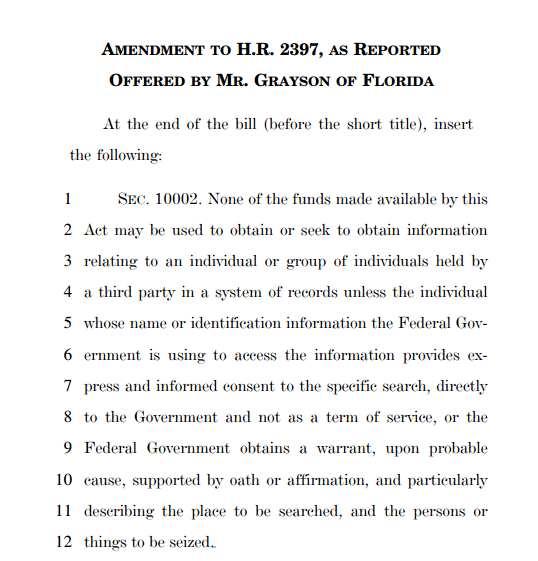Panama arrests ex-CIA station chief sought by Italy in rendition case
By Tim Johnson, McClatchy
Thursday, July 18, 2013
Robert Seldon Lady was the CIA station chief in Milan when Osama Moustafa Hassan Nasr was pulled from the streets of that city as part of an operation that Italian prosecutors later said involved 22 American agents, all of whom fled Italy shortly afterward.
Italy’s main news agency, ANSA, reported that Lady was detained in Panama and that Italian Justice Minister Anna Maria Cancellieri would have two months to formally request his extradition.
…
Italy’s top court of appeals in September confirmed a nine-year jail term for Lady in the extraordinary case, the first attempt by a foreign judiciary to prosecute U.S. officials for the controversial practice of extraordinary rendition – the practice of sending a person detained in one country to another country for questioning without requesting the approval of a court.
…
Nasr was snatched from Milan’s Via Guerzoni before noon Feb. 17, 2003, by two men who sprayed chemicals in his face and forced him into a white van. He turned up in an Egyptian prison, where he spent four years before his release. U.S. officials suspected him of recruiting radical Muslims in Italy for jihad in the Middle East, but he was never charged with a crime in Italy or Egypt.Italian prosecutors said they proved that the van was part of a CIA scheme to round up Nasr, move him to an air base north of Venice and on to Ramstein Air Base in Germany, before delivering him to Egyptian interrogators.
…
If Lady now faces the threat of being returned to Italy, Nasr has fared little better. During his four years in an Egyptian jail, Nasr tried to commit suicide three times, his attorney told Knight-Ridder newspapers, which was later bought by The McClatchy Co., in 2006.“He’s been exposed to torture ever since he was kidnapped in Italy,” attorney Montasser Zayat said then. “He said he was beaten even on the plane that took him to Germany before he was handed to Egypt.”
Lady has since been released and has flown back to the United States. An INTERPOL Warrant for his arrest remains in force.
Germany backs away from claims NSA program thwarted five attacks
By Matthew Schofield, McClatchy
Thursday, July 18, 2013
(German Interior Minister Hans-Peter) Friedrich had made the assertion about the number of attacks that the NSA programs – which scoop up records from cellphone and Internet accounts – had helped to avert after a brief visit to the United States last week. But on Tuesday, he told a German parliamentary panel, “It is relatively difficult to count the number of terror attacks that didn’t occur.” And on Wednesday, he was publically referring to just two foiled attacks, at least one and possibly both of which appeared to have little to do with the NSA’s surveillance programs.
…
(O)pposition politicians and commentators now are talking about the arrogance of the U.S. application of “winner’s power” (a reference to the political authority the United States had here during the Cold War, when Germany was divided between east and west, and West Germany leaned heavily on America for support), and how traditionally strong relations between the two countries have been harmed by the scandal.
…
Perhaps most troubling was how quickly the government backed down on the claims that the surveillance helped foil terror plots. Gisela Piltz, a Liberal Party member of the Bundestag intelligence committee, said she could not give exact details of what took place in the secret hearing but noted: “There was a clear discrepancy between the previously reported number of foiled terror attacks and the number we talked about.”
…
Piltz said that while terrorism is a real threat, the U.S. monitoring programs have done little to prevent it.“Germans are not safer because of U.S. espionage,” Piltz said. “It is true Germany has been lucky not to have suffered a terror attack, but there has to be a balance. We cannot sacrifice freedom for security, and when in doubt I would always opt for freedom.”

 On this day in 1848, a two-day
On this day in 1848, a two-day 
Recent Comments